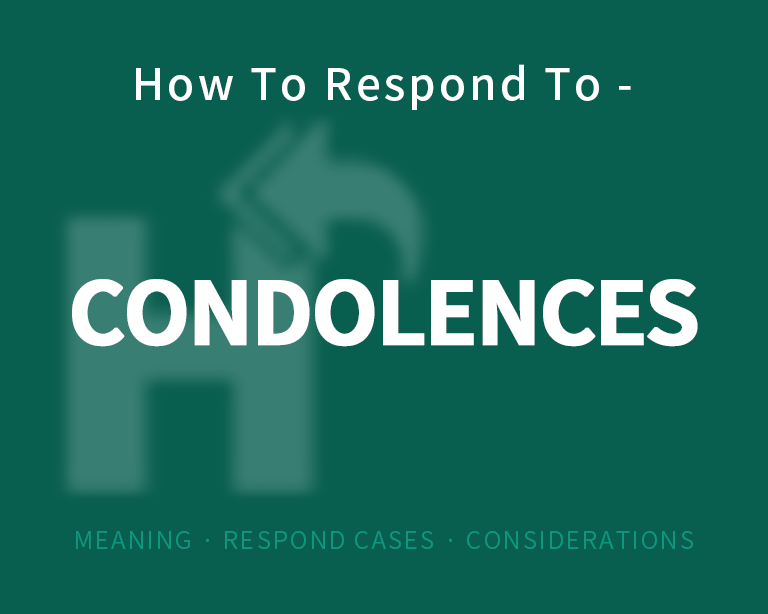The proper way to respond to condolences

What does 'condolences' mean?
Condolences refer to expressions of sympathy, sorrow or regret offered to someone who has recently lost a loved one. For example:
- Someone sends you a sympathy card or note after the loss of a family member. This is offering condolences.
- A friend or colleague tells you "I'm so sorry for your loss" upon hearing that your loved one has passed away. This is offering condolences.
- People post messages of condolences and share memories on the social media profiles of those who have died. This is a way of offering condolences.
The 3 best ways to respond to condolences
- Express gratitude. Say something like "Thank you for your kindness. Your words are very much appreciated." Let others know you are grateful for their support.
- Share a brief sentiment about your loved one. For example, you can say "Thank you, they meant the world to us." This acknowledges the loss but also honors your loved one's memory and impact.
- Keep responses brief. During this difficult time, keep your words concise while still being genuine. Short responses like "Your thoughts comfort us. Thank you." can be meaningful without requiring a lot of emotional energy.
What to consider when responding to condolences
Some things to keep in mind:
- Your grief is personal, so only share what feels right. Do not feel obligated to respond in depth.
- It is ok if responding to condolences brings up emotions. Give yourself grace and take breaks when you need them.
- Let others know the best ways they can offer support. For example, you might say "Your message brightens this difficult day. We appreciate your continued thoughts and prayers."
- Do not feel pressure to respond to each condolence individually unless that is helpful for you. You can also issue a public message of thanks to collectively acknowledge people's support.
- Look for opportunities to continue honoring your loved one's memory even in brief responses. This can help in the grieving process.
Specific examples of condolence responses
Example 1: For a sympathy card, write "Your kind words bring comfort. Thank you for remembering us during this time."
Example 2: For a social media message, post "Your messages of sympathy and support mean a lot. Thank you all for keeping us in your thoughts."
Example 3: For a phone call condolence, say "Thank you for calling. Your condolences lighten the burden of loss. They are a reminder of how much others cared for them too."
Summary
Responding to condolences with grace and gratitude is a way to allow the support of others to lift you up during times of grief. While the pain of loss may always remain, the love and care others express can be healing. Honor your loved one's memory through acknowledging the impact they had on others as well. Even just a short, heartfelt 'thank you' lets others know their thoughts are heard loud and clear during your time of sorrow. Take things day by day. Their gift of comfort will never be forgotten.